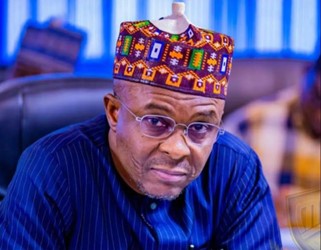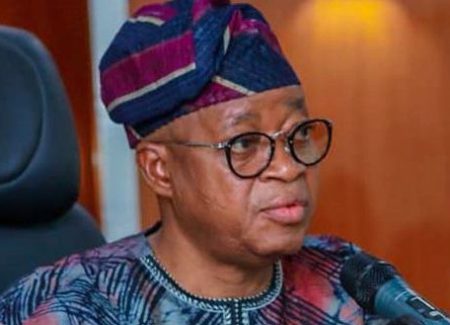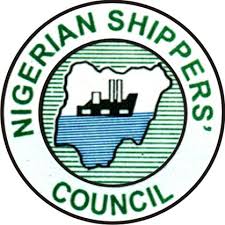
02 January 2017, Lagos – Fresh facts have emerged that the promoters of the Lekki Deep Seaport are now jittery over the decision of the Federal Government to divest from the multi-billion naira project.
For long, speculations about the Federal Government divestment plans on the Lekki deep seaport were rife as not a few stakeholders in the maritime industry wondered why it would put huge funds in a venture it lacked the capacity to manage efficiently.
The exercise which was midwife by the Bureau for Public Enterprises (BPE) removed the role of cargo handling in the nation’s seaports from the NPA. Confirming the divestment plans of the Federal Government, the Managing Director of NPA, Ms. Hadiza Bala Usman said the authority would scale down the 20 per cent shareholding in the Lekki deep seaport.
Usman who dropped the hint in Lagos during a press conference to mark her 100 days in office stated that her management team considered the present equity share of the Federal Government in the project as too high.
According to her, the authority had already paid 4.4 per cent of its level of equity in the project.
Though she stated that the deep seaport would not suffer funding issue because of NPA’s decision to slash its shareholding in it, there are fears in some quarters that the scheduled date for project completion may not be realised.
THISDAY checks revealed that the promoters of the project are worried over its fate as the downturn in the economy makes it virtually impossible to get investors with deep pockets that are willing to put their funds into the project.
Already, the promoters have gone to the drawing board to re-strategize and chart ways and means that will not allow the project to suffer any funding setback.
This is coming on the heels of the Usman’s failure to make public the rataio of reduction to be effected in the shareholding, how much the 20 per cent equity amounted to, and the sum the 4.4 per cent that has been paid represented.
The Lekki deep seaport is a $1.5 billion public private partnership project involving the Federal Government represented by the NPA, the Lagos State Government and the Tolaram Group, a Singaporean investor which is promoting it.
A shareholder’s agreement to this effect was signed in December 2012 amongst all the three parties.
Though the 20 per cent stake of the NPA in the project represented about $118 million while the 4.4 per cent amounted to about $5million, the NPA Managing Director explained that the authority has so many projects in which she needed to invest so much money.
She argued that the prevailing economic situation would not allow the authority to invest so much money in such a project in spite of its prospects.
She explained that the amount that would be realized from the disinvestment in the deep seaport would afford the authority the opportunity to use the money in other areas of its operations meant for the development of the Nigerian seaports.
NPA had hinged its current level of equity in the multi-billion naira project to its belief that it will create thousands of direct and indirect employment besides serving as an avenue to address the present congestion in the ports situated in Apapa, Lagos.
Besides the Lekki deep seaport, there are no fewer than three other ones proposed in the Greenfield Development Plan which are aimed at making Nigeria to be a hub in the West and Central African Sub-regions.
These include the ones prosed for Olokonla in Ogun state, Ogidigben in Delta State, and Ibom, Akwa Ibom State.



